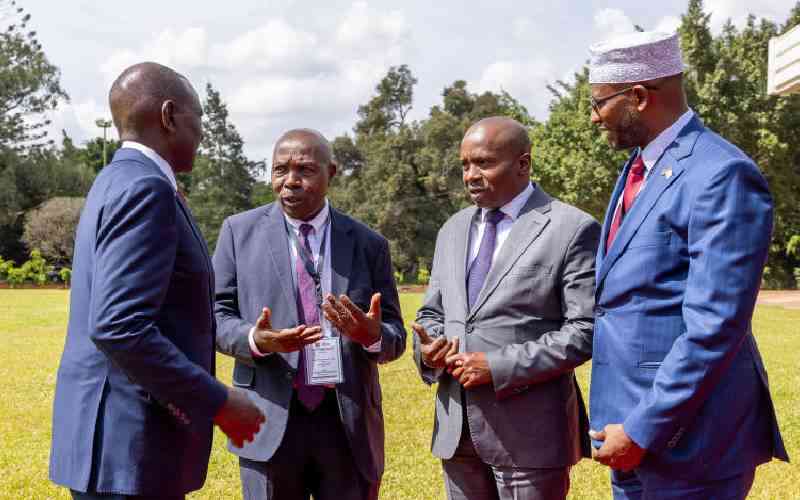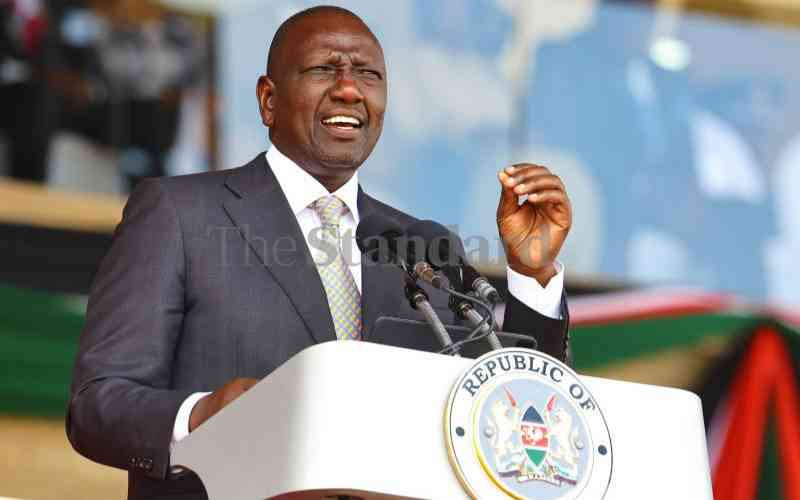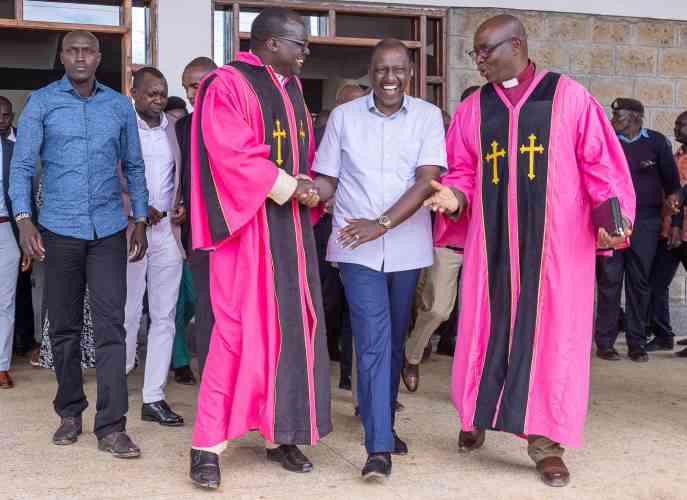Devolution – the decongestion and decentering of power – is a beautiful thing when it works.
The constitutional concept isn’t new. It has many iterations. It can take the form of ethnic devolution in which subnational groups exercise power in their geographic locales.
Or it can be in the form of personal law based on religion, or some other identity. Finally, it can be purely normative in the abstract – where local administrative units are created based on the idea of individual rights and endowed with powerscarved from the central state.
In theory, Kenya adopted the last model in 2010. Nowhere else in the country has this model worked better than in Kivutha Kibwana’s Makueni County. Let’s dig deeper.
I don’t want to use hyperbole, but Makueni today stands out as the model county in Kenya. I’ve always known there are very sharp minds in Makueni. I have scoured records of national examinations and the county outperforms many others. May be it’s something in the water, although I am told that element isn’t found in abundance in Makueni.
So, it must be a certain grittiness – scrappiness – in the people. The county has produced some brilliant legal minds, not least of which we can count Prof Kibwana and the late Mutula Kilonzo, the first East African to obtain a First Class degree in law from the vaunted University of Dar-es-Salaam School of Law. Great civilisations come from great minds.
Moving spirit
I’ve known Prof Kibwana for eons. He was my professor at the University of Nairobi School of Law. Later in the 1980s, we were both students at Harvard Law School.
Often, the late Prof Hastings Okoth-Ogendo, an academic giant in his own right, would come to Boston as a Visiting Professor in law schools there. We got together every time Prof Okoth-Ogendo came to Boston.
He had a soft spot for me. We were ideologically incongruous, but he claimed me as an academic scion.
I’ve not publicly told this story before. Prof Okoth-Ogendo didn’t give compliments easily. But he always sang praises of Prof Kibwana’s brilliance every time I saw him. He told me Prof Kibwana was destined for great things. And he was right.
Prof Kibwana would complete his advanced studies in law and return to Kenya whereupon he became a moving spirit – the spokesperson – of the National Convention Executive Council. He lit the country on fire and helped move us towards an open society.
He later served as Dean of the University of Nairobi School of Law before joining elective politics as MP, minister, and presidential advisor. But his latest political reincarnation as Governor of Makueni County trumps all others.
Prof Kibwana and I haven’t always agreed on everything. Nor could we. As Senior Counsel Paul Muite often reminds me – with his characteristic flourish – if two people always agreed on everything, then one of them would be unnecessary. What is clear to me is that Prof Kibwana – a constitutional scholar par excellence – has understood the 2010 constitution than most governors.
That’s not surprising considering his legal IQ and the years spent in the vineyards planting seeds of democratic constitutionalism. That’s what he took to Makueni. He’s only one of a handful governors who truly understand their job – and do it. However, Prof Kibwana was in for a rude awakening in his first term. Old-style apparatchiks blocked his reforms at every turn. Former regime elements wanted him to despair. But he drew his strength and inspiration from the people, not the MCAs and the Speaker of the County Assembly.
Stay informed. Subscribe to our newsletter
At one point, gunfire was exchanged and he was almost shot. But he soldiered on. Many of those adversaries were shown the door by the electorate in the last election.
You can’t stop a good idea whose time has come. Prof Kibwana gives citizens at the lowest rungs of society a voice they’ve never had. He’s recognised the long-forgotten Mau Mau veterans of Makueni. The people literally run their own county. They decide whether contractors will be paid.
Servant leadership
One picture of Prof Kibwana sitting on a lonely boulder in a windswept field intently listening to barefoot peasants went viral. That picture symbolised deliberative government, grassroots consultation, servant leadership and humility. In Prof Kibwana’s Makueni, no citizen is too small. The biggest office is that of citizen, not governor.
Prof Eunice Njeri Sahle of the University of North Carolina at Chapel Hill has done governance research on Prof Kibwana’s Makueni. Her verdict – what’s happening in Makueni is revolutionary. Governors elsewhere should go benchmark in Makueni, not America.
- The writer is SUNY Distinguished Professor at SUNY Buffalo Law School and Chair of KHRC. @makaumutua
 The Standard Group Plc is a
multi-media organization with investments in media platforms spanning newspaper
print operations, television, radio broadcasting, digital and online services. The
Standard Group is recognized as a leading multi-media house in Kenya with a key
influence in matters of national and international interest.
The Standard Group Plc is a
multi-media organization with investments in media platforms spanning newspaper
print operations, television, radio broadcasting, digital and online services. The
Standard Group is recognized as a leading multi-media house in Kenya with a key
influence in matters of national and international interest.
 The Standard Group Plc is a
multi-media organization with investments in media platforms spanning newspaper
print operations, television, radio broadcasting, digital and online services. The
Standard Group is recognized as a leading multi-media house in Kenya with a key
influence in matters of national and international interest.
The Standard Group Plc is a
multi-media organization with investments in media platforms spanning newspaper
print operations, television, radio broadcasting, digital and online services. The
Standard Group is recognized as a leading multi-media house in Kenya with a key
influence in matters of national and international interest.








